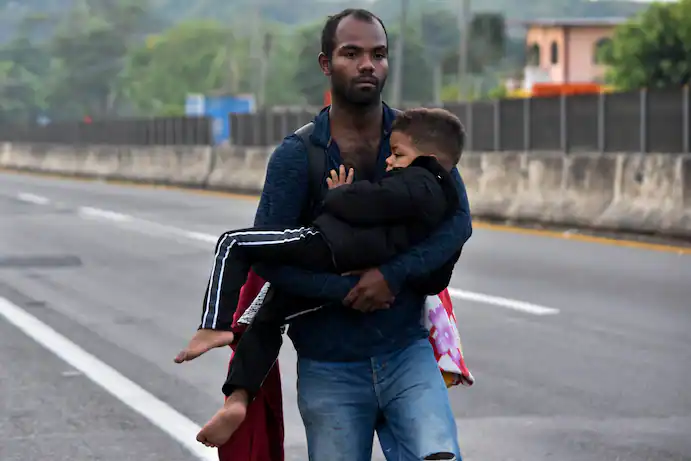A small group of migrants began their journey from Tapachula, a city in southern Mexico near the Guatemalan border, on Thursday, hoping to make progress toward the United States. The caravan includes migrants from Venezuela, Guatemala, El Salvador, Peru, and Ecuador, many of whom expressed frustration with being unable to move freely through Mexico.
Despite their intentions, the caravan faces significant challenges. Historically, few migrant caravans have reached the U.S. border, with most being stopped or dispersed by Mexican authorities. The likelihood of this group making it far is slim, given recent crackdowns on similar efforts near Tapachula.
Giscarlis Colmenares, a 29-year-old Venezuelan, shared her struggle. She has been waiting for nearly three months for an asylum appointment through the U.S. CBP One app. For her, the immediate goal is reaching Mexico City, where she hopes to find work. “We need to see if we can move forward or stay here and save enough to return to Venezuela,” she said.
Mexico City, however, offers little respite. Migrant camps in the capital are already overcrowded, leaving many with limited options. Meanwhile, other caravan members, like Douglas Ernesto from El Salvador, remain focused on reaching the U.S. but are open to settling in Mexico if necessary. Traveling with his wife and 10-year-old son, Ernesto admitted, “Getting beyond Tapachula is very difficult.”
In recent years, Mexican authorities have taken a firm stance against migrant caravans. Police and immigration agents frequently block, detain, or return migrants to southern border areas. While larger caravans in 2018 and 2019 received limited assistance, such as bus transportation, smaller groups like this one are left to navigate on foot or hitchhike, often facing harassment and obstacles.
The migrants’ motivations vary, but many share a common desire to escape economic hardship and instability in their home countries. Tapachula, overwhelmed by thousands of stranded migrants, offers few opportunities for work, leaving many desperate for alternatives.
While the caravan’s immediate prospects remain uncertain, its members continue their journey with hope, even as history suggests their chances of success are slim.

